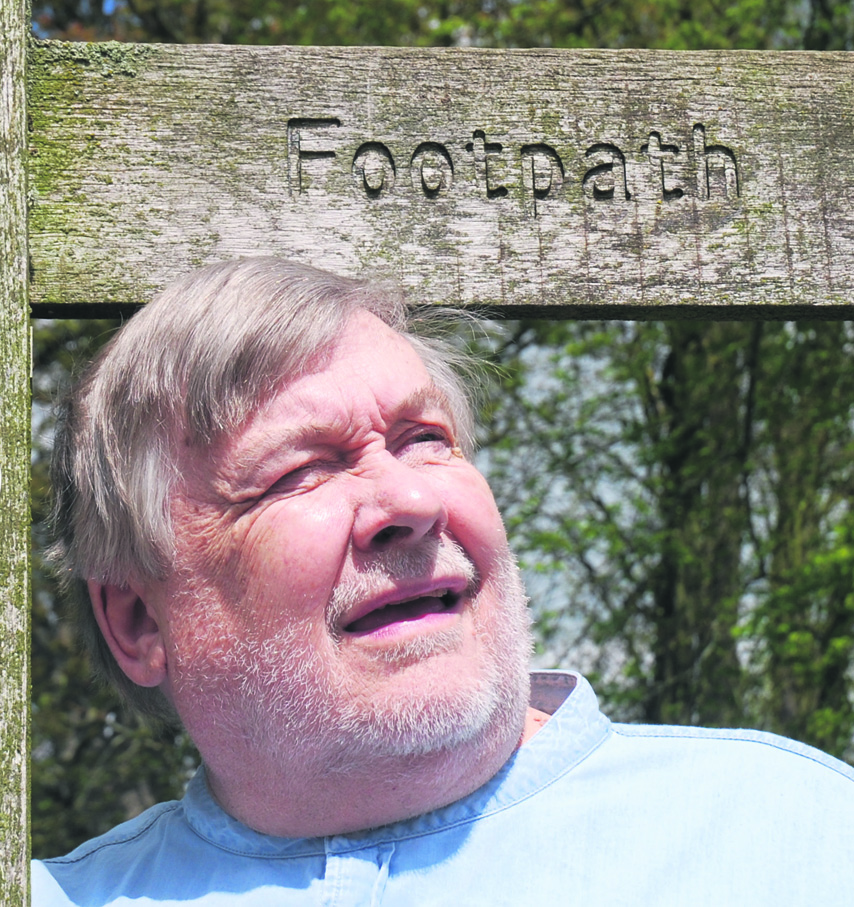Durham Miners’ Association general secretary ALAN MARDGHUM speaks to Ben Chacko ahead of Gala Day 2025

 A moray eel
A moray eel
I SPENT the roasting August bank holiday weekend in Suffolk visiting my cousin Laurie and his wife Donna who live just outside of the beautiful ancient wool town of Bury St Edmunds.
Bury is rich both with magnificent ancient religious buildings and more modern cathedrals of food and drink.
As you turn off the A14, your arrival is dominated by the huge and often sickly-sweet steaming British Sugar beet processing works. It turns East Anglia’s beet harvest into all kinds of sugars.
British Sugar has an interesting business on the side. It is Britain’s biggest legal grower of cannabis and at a secret location not a million miles from Bury it produces an amazing three-quarters of the world’s legal crop of marijuana.
At the heart of Bury itself is the massive Greene King Brewery. It has filled the town with pleasant beery odours since 1799. This is Britain’s largest pub, restaurant and hotel brewery chain.
Along with most other large British brewers, it is a major financial supporter of the Tory Party. That hasn’t stopped the brewery getting bought up by the Li family.
The richest family in Hong Kong has set up a special company based in the Cayman Islands to run the brewery — another great result for Tory uncertainty, austerity and the weak pound.
While these takeover talks were taking place, Bury was holding its impressive food festival over the bank holiday weekend and the town streets were full of food stalls.
We grazed on local game pie, Punjabi samosas, Jamaican jerk chicken, Polish smoked sausage and scores of other delicacies — washed down with fruit juices, local beers and, as you would expect these days, countless exotically flavoured gins.
My cousin Laurie, like me, made his living as a scribbler. Journalism must be in our genes. Laurie’s mum was my mum’s younger sister.
On one notable occasion his mum phoned my mum to get her to get me to tell Laurie that he was about to ruin his life.
Laurie had a good job on the local Bury paper but had been offered another job. My instructions were to tell him not to take it. The new job was as public relations officer for Greene King beer.
Much to both our mum’s disgust I told him to take the job and if he didn’t want it he could put me forward for the post, which mainly seemed to involve shepherding Green King’s sponsored dart players on trips to various pubs and buying the fans pints on expenses.
Laurie enjoyed the job for many years and also did a bit of freelancing, including most notably writing the horoscopes for an erotic adult magazine. Before you ask, Laurie knew nothing about astrology.
Laurie and Donna are both foodies and we had a great day grazing around the food festival. We took a break to sit down in the open-air theatre to see a demonstration by a famous chef from a posh hotel in town. For reasons that will soon become clear I won’t name him.
He was making a goat’s cheese cheesecake with a beetroot jelly topping. It looked pretty good until, in the last stages of the preparation, he dropped the lot.
His young female assistant wasn’t wired for sound but no-one in the audience missed her acerbic aside: “I make 20 of these every day in the hotel and I haven’t dropped one yet.” So much for celebrity chefs.
On the last day of our break we headed for Felixstowe, an unlikely destination for what Laurie promised would be a rare culinary experience.
Our destination was Sally Jane’s Pie ’n’ Mash Shop. What a treat it turned out to be. The owner Sally was off that day but in charge was Bob Strang and what he lacked in celebrity cheffing he more than made up in the food he served us and way he talked about it.
Bob was full of praise for his boss Sally: “She works really hard and has invested lots of her own money developing the business, particularly the mail order side. I’m now nearly retired and glad to be sharing my experience with her in developing her business.”
Sally has chosen well — Bob’s knowledge of the food culture of cockney London is truly encyclopaedic. He had worked in many of the most famous London eel, pie and mash houses before opening a new one in the pleasant port of Maldon in Essex a score or so years ago. That restaurant is still open but in other hands.
Bob served us a dish of the finest eel, pie and mash with green liquor. It was simply the best I have ever tasted and when we had finished he joined us at our outdoor table to talk about this traditional London food.
I asked where the eels were from. I always get a small pang of guilt eating eels because I know that this curious beast is threatened in many traditional fisheries.
Bob explained he bought all his eels from the Lough Neagh fishermen’s co-operative in the North of Ireland. I know this co-op. It has been a leader in the field of sustainable wild eel production for decades.
Bob gets a box of live eels delivered once a week and chuckled that the slithering sounds from inside the box often perturbed the delivery driver.
Bob doesn’t stew his eels until a customer orders them. A modern high-tech pressure cooker means the delay is not too long and the superb taste and texture make any wait worthwhile.
Bob spoke of the dilemma of the eel pie and mash cook’s year. “The best-tasting green liquor is made from the first growth of English parsley in May, just when the new flush of eels arrives on the market,” he explained.
“But the best mash comes from the second crop of fenland Maris Piper potatoes, and that doesn’t come until the end of the summer.”
To demonstrate his point he nipped back into his kitchen and emerged with what, to me, seemed like a large perfect potato.
“Look at this,” he protested, “a good fenland potato should be really black from the fen earth, and it should stay black even when you scrub the peaty soil off.
“These are all I can get at the moment,” he went on, giving the humble spud a disapproving and withering look. “And they are too salty.”
Having tasted the delicious velvety mash he had achieved from this less than perfect ingredient, I could only marvel at what his best mash must be like.
More conversation ranged from London football teams — his is Arsenal — to the bread rolls and bread pudding he bakes.
The rolls he proffered had toppings of poppy, pumpkin and sesame seeds. He insisted we take the few we hadn’t been able to eat home in a bag.
We also got a small selection of vinegars and a giant slab of bread pudding to take home too. All in, the bill came to less than 12 quid a head.
Oh, and he never dropped any part of the meal at all.
The best, however, was still to come. Just as we were leaving, Bob dropped his culinary bombshell: “By the way,” he said, “do you know I’m the last person in England to make proper eel pies?”
Now those of us who study food history know all about eel pies. They are mentioned in most working-class Victorian novels.
Henry Mayhew’s famous book, London Labour and the London Poor, of 1851 has much to say about them. Yet I’ve never eaten one and I have never met, or heard of anyone else who has ever eaten one either.
Bob gave me the basic recipe. “Same pastry as the meat pies you have just eaten.” That was a good start, his minced beef pie had been wonderful.
“It is filled with filleted eel meat, seasoning and a few other ingredients including some thin slivers of smoked eel from northern Germany.”
I could hardly believe it, a chance to taste a true gastronomic legend.
Bob told me he needs a few days notice, so my wife Ann and I are checking the diary to see how soon we can get back to Felixstowe.
Celebrity chefs? You can keep ’em. Give me Bob and his eel, pie, mash and green liquor any day. Or even better his real eel pie.
For more information about Sally Jane’s Pie ’n’ Mash Shop and to order food to your home visit sallyjanespies.uk.



















